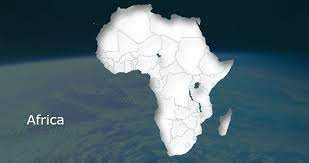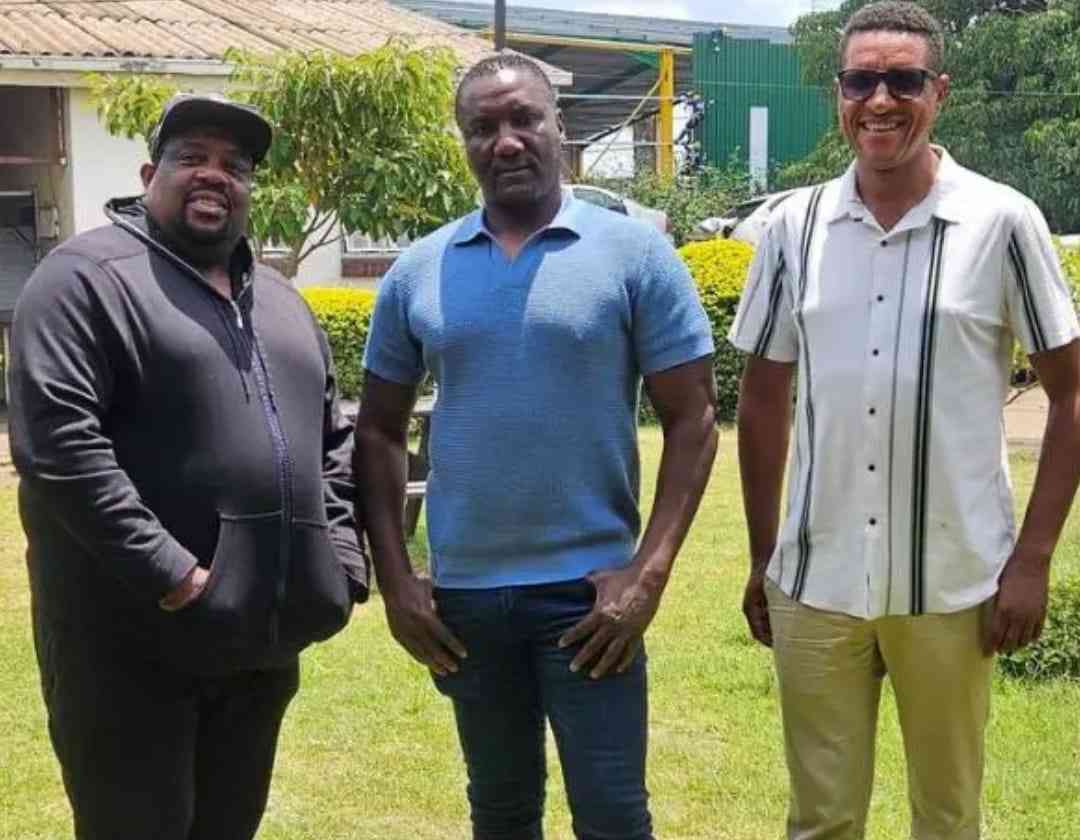
Africa’s development aspirations—embodied in the African Union’s Agenda 2063 and the United Nations’ Sustainable Development Goals (SDGs)—face an existential threat.
Not from lack of ambition, resources, or innovation, but from the lingering shadow of colonialism and the suffocating grip of industrialisation on the continent’s food systems.
These forces have not only impoverished Africa’s soils and diets but have also severed spiritual ties to food and the environment, ties once central to African identity, wellness, and resilience.
Understanding the spiritual, ecological, and cultural damage wrought by colonial and industrial food systems is crucial to shaping an alternative—one that reclaims ancestral wisdom and restores food sovereignty.
The cost of ignoring this truth is not just malnourishment or economic dependence—it is the forfeiture of a sustainable future rooted in dignity, harmony, and wholeness.
Before the arrival of colonial powers, African food systems were embedded in a sacred covenant with nature.
Agriculture was more than a survival strategy—it was a spiritual practice rooted in gratitude, reciprocity, and a deep respect for the earth. The land was revered as a living entity, a maternal force that nurtured all. Farming followed the rhythms of the moon and seasons, guided by ancestral wisdom and communal rituals.
Food itself was sacred. A harvest was celebrated with offerings to ancestors. Meals were communal, strengthening bonds and reinforcing the ubuntu/hunhu philosophy of shared humanity. Imagine this system as a vibrant, living garden—every plant, animal, and human playing a part in an interdependent web sustained by spirit and soil.
- Open letter to President Mnangagwa
- Feature: ‘It’s worse right now than under Mugabe’: Sikhala pays the price of opposition in solitary cell
- Masvingo turns down fire tender deal
- Human-wildlife conflict drive African wild dogs to extinction
Keep Reading
But with colonisation came rupture.
Colonial policies slashed through this sacred tapestry with brutal efficiency. Land was no longer seen as a provider but as a “resource” to be exploited. Fertile lands were seized for cash crops like tobacco, coffee, and cocoa to serve foreign markets. Indigenous crops were sidelined, and spiritual relationships with the earth were desecrated.
It was as if an ancestral shrine had been bulldozed to make way for a mine—a gross violation of both land and lineage.
The result? Spiritual dislocation. Communities lost not only their food security but their identity and connection to their heritage. This spiritual vacuum contributed to a sense of cultural disorientation that still reverberates today.
In terms of physical health, the imposition of monocultures decimated diverse, nutrient-rich diets, increasing vulnerability to famine and ushering in an age of malnutrition and later, chronic diseases. Processed foods, imported and advertised as “modern,” began to displace traditional, wholesome diets. Diseases once rare—like diabetes, hypertension, and obesity—are now widespread.
The environmental toll was equally catastrophic. Monocultures degraded soils and drained water tables, biodiversity collapsed, and once self-sufficient communities became dependent on volatile global commodity markets.
African economies were shackled to a model that exported raw materials and imported processed goods—a cycle of economic captivity that persists today.
Post-independence, Africa was promised progress through industrialisation. But in the agricultural sector, this industrial logic extended colonial patterns, mechanising food systems and further divorcing people from nature.
Industrial agriculture treats food production like a factory—obsessed with speed, yield, and profit, regardless of the environmental or spiritual cost.
In this new paradigm, the sacred garden was replaced by a sterile, mechanical landscape—concrete, chemicals, and machines churning out lifeless, uniform products.
The spiritual impact has been profound. Food, once honored, is now treated as mere fuel—produced in distant factories, stripped of story, soul, and sacredness.
This disconnection fosters what might be called “food amnesia.” We forget the farmer’s hands, the soil’s breath, the sun’s kiss on ripening fruit. Meals cease to be rituals and become transactions.
This detachment has ethical consequences too. Factory farming hides animal cruelty, exploitative labor practices, and environmental degradation behind plastic packaging.
With no visibility comes no accountability. Consumers are numbed to the moral weight of their choices, deepening the spiritual void.
And the body, like the Earth, suffers. The industrial food system floods markets with processed, additive-laden products that prioritize shelf life over nutrition.
Non-communicable diseases—diabetes, heart disease, cancer—are now epidemics. Mental health, too, is eroded by the disconnection from nature and the anxiety of an unjust, unsustainable food system.
On an environmental level, industrial agriculture is a chief architect of climate collapse. Its dependence on synthetic fertilizers, pesticides, fossil fuels, and long-distance transportation generates enormous greenhouse gas emissions. Soil and water systems are poisoned. Indigenous biodiversity vanishes under rows of genetically modified organisms (GMO) monocultures.
And while African nations possess the capacity to feed themselves, many have become net food importers. This food imperialism reinforces dependency on Western agribusiness, undermines local markets, and weakens national food sovereignty. Seed sovereignty, once protected by intergenerational knowledge, is now eroded by corporate control of GMO and hybrid seeds, locking farmers into cycles of purchase and debt.
All of this flies in the face of Africa’s stated development goals.
Agenda 2063, the AU’s blueprint for a prosperous, integrated, and sustainable Africa, envisions food security, healthy citizens, and thriving rural economies. The UN’s SDGs likewise prioritize sustainable agriculture, good health, climate resilience, and strong institutions.
Yet, the legacy of colonial and industrial food systems undermines these ambitions at every turn.
Silenced by ancestors: By ignoring Indigenous knowledge systems, development policies silence the wisdom that once sustained Africa’s abundant ecosystems and resilient communities.
Eroded resilience: Communities robbed of food sovereignty, seed diversity, and environmental health are more vulnerable to climate shocks, pandemics, and market disruptions.
Stunted innovation: Development models imported wholesale from the Global North often fail to adapt to African realities. True innovation must rise from within—rooted in context, culture, and community.
Health crisis: The burden of lifestyle diseases strains healthcare systems and diverts resources from education, infrastructure, and poverty alleviation. Wellness, once integrated into daily spiritual and dietary practices, has been medicalised and commodified.
The antidote to these challenges lies not only in policy reform but in spiritual awakening.
We must re-sacralise our relationship with food—seeing it again as a gift, a medicine, and a link to both earth and ancestors.
This begins with reclaiming Indigenous farming methods, nurturing seed sovereignty, and reviving rituals that honor the cycles of nature.
Decolonising food systems also means resisting the narrative that Western-style industrial agriculture is the only path to progress. Africa’s wealth lies in its biodiversity, its cultural richness, and its ancestral wisdom.
By investing in agroecology, community-based food systems, and youth-led innovation grounded in tradition, the continent can chart a new path—sustainable, sovereign, and spiritually fulfilling.
Only when food ceases to be a lifeless commodity and is once again revered as sacred sustenance can Africa truly feed itself—body, mind, and soul.
*Tinashe Elvis Chikodzi is a Zimbabwean writer, researcher, and healing justice advocate exploring the intersections of trauma, spirituality, and sustainable development.
With a background in community empowerment, he integrates Indigenous knowledge systems, mindfulness, and family constellations to address systemic challenges.
His work calls for the decolonization of thought and practice as a pathway to genuine African renewal.
*These weekly articles published are coordinated by Lovemore Kadenge, an independent consultant, managing consultant of Zawale Consultant (Private) Limited, past president of the Zimbabwe Economics Society and past president of the Chartered Governance & Accountancy Institute in Zimbabwe. Email: [email protected] or Mobile No. +263 772 382 852











